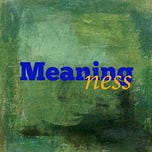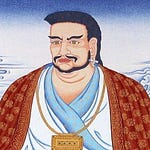This is a monologue about interactions between Buddhism and cognitive science, prompted by a blog discussion of doubts about modern meditation systems.
“There are not many intellectually interesting people in the world, and they all talk to each other. They’re in very different fields, working out the same set of ideas in different contexts. But any intellectual era has a limited number of major, significant new ideas everybody’s working on. If you’re going to be part of the zeitgeist, you need to figure out which ideas are actually significant now.”
Project Cybersyn Operations Room; image (CC) Rama
I deliver pedantic rambles like this practically every day, hours in a row sometimes. My spouse Charlie records some, and for years has encouraged me to make them public. I’m reluctant because I want to be careful, and when I’m ranting off-the-cuff I say things that are false and/or offensive. On the other hand, I often cover material that’s unusual and could be useful or interesting for someone, and which I’m never going to have time to write up properly.
This one is from 2019; I originally posted it here, and am reposting it for a broader audience.
There’s a full transcript—after some notes and links—if you’d rather read than listen.
Explanatory notes, corrections, and links
Tom Wooldridge’s posts expressing doubts about contemporary Theravada-derived meditation: 1, 2, 3. These are the ones Thompson responded to. I have expressed similar doubts before, and I think investigating them is important, particularly considering how many people are adopting such practices.
Thompson’s blog comments that prompted this podcast: 1, 2. I agree with the points he makes here. Most of the monologue is not about this though; it was prompted by the question “who is Evan Thompson,” for which the answer is “I don’t really know, but here is some of his intellectual lineage.” I did get to the meditation issues near the end.
The Embodied Mind: Cognitive Science and Human Experience by Varela, Thompson, and Rosch. Originally published 1991; revised 2016. Since the recording, I’ve read Thompson’s new introduction to the revised edition; it addresses and clarifies many of the points discussed both in the Wooldridge/Ingram dialog and in my audio piece. It also suggests that my speculations about a student/teacher relationship between Thompson and Rosch were completely mistaken; he was a student of Varela, not hers. Also also Thompson seems to be much more in the Continental, phenomenological philosophical tradition than the analytic one; I had misremembered that.
Prototype theory, Rosch’s main intellectual contribution
Francisco Varela. I mischaracterized him as a “hardcore cyberneticist.” He was actually a neurophysiologist primarily; a student of Torsten Wiesel, who with David Hubel founded modern neuroscience.
Maturana and Varela, The Tree of Knowledge: The Biological Roots of Human Understanding. Originally published in 1984 (I misremembered late 1970s); revised in 1992.
“Abstract Reasoning as Emergent from Concrete Activity” by Phil and me. Probably our work most relevant to the topic of the monologue; 1986
Computation and Human Experience, Phil’s main book; 1996 although a revised version of his 1989 PhD thesis.
Shambhala Training, a system of secular Vajrayana meditation founded by Chögyam Trungpa Rinpoche. I forgot to mention in the monologue that Shambhala Training was explicitly modeled in form (although mostly not in content) on Werner Erhard’s est.
Gregory Bateson. I said he was influenced by Buddhism, but a quick web search suggests that’s wrong. Many American Buddhists were influenced by him, though!
Salvador Allende. The role of the CIA in the coup against him seems to be more complicated and historically contested than I remembered.
Project Cybersyn, Flores and Beer’s economic automation system.
Winograd and Flores, Understanding Computers and Cognition: A New Foundation for Design
Dreyfus’ influence on Phil and me
Dreyfus, What Computers Still Can’t Do: A Critique of Artificial Reason
Dreyfus, Being-in-the-World: A Commentary on Heidegger’s Being and Time, Division I
Buddhist and Taoist influences on Heidegger. I learned after recording that this was the subject of Thompson’s undergraduate thesis, which led to his working with Varela.
Charlie’s blog series on Culadasa’s The Mind Illuminated. Charlie was practicing this modern Theravada-derived meditation system in order to compare it with Vajrayana, and writing about the experience. This project was motivated partly by the same concerns expressed by Wooldridge and Thompson.
Sharf, “Buddhist Modernism and the Rhetoric of Meditative Experience.” This 1995 paper was a major inspiration for my writing on Buddhist modernism. Evan Thompson cites it in the blog comment that somewhat tangentially sparked this podcast.
“Theravada reinvents meditation,” my history of modern meditation systems, the topic Wooldridge, Thompson, and Ingram discuss; 2011.
Abhidhamma. “Ten valleys of dry bones.”
Thomas McEvilley, The Shape of Ancient Thought: Comparative Studies in Greek and Indian Philosophies. “The history is certainly shaky if not outright crackpot.” It’s fascinating, though, and I find some parts of it convincing.
Transcript
David: There’s a really interesting comment on a Buddhist blog today from Evan Thompson. He shows up in Buddhist contexts periodically as a podcast guest and things like that. But he’s actually a major analytic philosopher of mind. So he’s definitely slumming by showing up on on Buddhist blogs.
The thing that I think he’s best known for is that he is a co-author, one of three authors, of a book—
I’m going to get lots of details of this wrong because I’m just doing all this from memory, and I don’t like doing that. And whenever I write on the web, I’m really careful about going back to sources and checking my footnotes and stuff, and I’m doing this completely off the cuff. So this is kind of embarrassing and there will be things wrong.
But I think it was early nineties. He’s one of three authors on a book whose name escapes me completely. The other two authors were Eleanor Rosch and a guy named Varela. Varela had a funny first name and I can’t remember what it was. Thompson, Rosch, and Varela were the authors, and they’re all cognitivists, cognitive scientists of sorts. But to some degree they’re rooted in the cybernetic tradition.
When when cognitivism got started in the forties and fifties, cybernetics was a very big part of it, but they diverged—because most of the cognitivists were representationalists. That was their whole thing: so far as they were concerned, cognitivism and representationalism were virtually interchangeable concepts. Whereas the cybernetics were anti-representationalist, or at least gave a much lesser role to representation in explanations of mind.
Varela was an old line cyberneticist. He had written, with a guy called Humberto Maturana, I think in the seventies, the two of them wrote a very influential—well, very well known—I’m not sure influential, because cybernetics in general was a dead end, unfortunately. They wrote a critique of cognitivism from a cybernetics point of view, and said, look, what’s important is dynamics, not representation. And that idea is, I think, a very good and important one. Phil and I had the same idea, but we were getting it in a very different way and took it in different directions. So that’s Varela.
Eleanor Rosch was a cognitive psychologist at Berkeley. The thing she’s known for is her work on categories. The idea is that categories are fuzzy, which is true and important, and they have central members and they have peripheral or marginal members. One of her standard cases was that a robin is a central bird, and a penguin is a marginal bird.
Her experiment would say if you ascribe some property to a central member of the category and then ask if it applies to a peripheral member, the answer is likely to be yes, but that doesn’t go in the opposite direction.
So if you say a dog, a prototypical mammal, has an omentum; do you think a bat has momentum? People will say, yeah, I don’t know what an omentum is, but yeah, probably.
If you say a bat has an omentum; do you think a dog has an omentum? People say, bats are weird, god knows what they’ve got. (An omentum is an anatomical feature that holds your guts in place.)
That put her on the map, and she was kind of a heroic founder figure for cognitive psychology. But she was looking at fuzzy categories, I think probably precisely because the hardcore rationalist representationalist line of cognitivism doesn’t want to deal with fuzzy categories. That’s its whole thing, to dualize and get away from fuzziness.
Sometime along the way, she wanted to make a statement against the hardcore representationalism, and she and Varela, and then Thompson came in—he’s a generation younger. So the three of them, Rosch, Varela, Thompson co-authored a book which was quite influential. Again, like the Varela and Maturana one, it’s influential in the sense that everybody read it and said, yeah, this is great. And then nothing happened—because the cybernetic lineage has no workable alternative proposal.
You can jump up and down as much as you like about “representationalism is wrong,” which it obviously is; but unless you can find an alternative way forward, nothing happens. And so nothing really came of the book, although it was very widely read.
Charlie: So that book was pointing out the problems of representation, from a cybernetic perspective?
David: Well, I think roughly cybernetic. I mean, Varela was definitely a hardcore cyberneticist. I don’t think either Rosch or Thompson are exactly cybernetics, but Rosch started with fuzzy categories.
Also I said there’s a Buddhist lineage involved here. Rosch was practicing in the Shambhala lineage; I believe she was a direct student of Trungpa Rinpoche. Evan Thompson is my great uncle in the Shambhala lineage. I don’t actually know what the relationship between Rosch and Thompson is. He was the junior colleague at the time they co-wrote that book, just in terms of age. I have always assumed that he was her direct student, but that may be completely wrong, given that he actually is an analytic philosopher and she was in the psychology department. Although, cognitive science did transcend those departmental boundaries.
I don’t know whether she was also his Buddhist teacher. She became a teacher in the Shambhala lineage… something I’m being vague on is whether she was directly the teacher of Ngakma Zér-mé, who was my teacher in the Shambhala lineage, or… I think she was the teacher of the teacher of Zér-mé. So she’s my great grandmother. If Thompson was her direct Buddhist student, then he’s my great uncle… or something. [laughing]
Anyway, I don’t think it’s a coincidence that he’s a cognitivist Buddhist and she was a cognitivist Buddhist. If you take Buddhist philosophy seriously, which he obviously does (although his comment was about the fact is not currently a Buddhist and maybe never was), that undermines cognitivism.
There’s been a strong dialogue among intellectuals involved in Buddhism with cognitivism and with cybernetics, starting from the 1960s wave of Buddhism in the West, going back to Gregory Bateson, who was one of the founders of cybernetics. I don’t think he would have described himself as a Buddhist, but he also certainly was very much influenced by Buddhism.
So, ah, Fernando Flores is a very interesting guy. He was a hotshot economist who somehow in the Allende government in Chile—I’m not remembering history perfectly, but I think this is early seventies or late sixties—at the age of 30 or so, he managed to become the economics minister for Chile under Allende. Allende was a socialist, but a very forward looking socialist. And Flores, as an idealistic but very smart socialist, wanted to do something which the Soviet Communists had the idea of and failed to do.
The idea of Soviet Communism was the state plans the economy, and can do it rationally by writing out equations for how much steel are we going to need next year, based on which cities are we building up and how many miles of railroad are we going to run, and you have all of these factors feeding into each other, and you do a lot of calculation. And they were doing this mostly on paper, although they they they did switch to computers and that never worked.
But Flores thought, okay, we can do this better than the Soviets did, we can have better computers and we can have better theories of control, which he wanted to get from cybernetics. He got permission from Allende to take control of the economy using computers and cybernetics.
He invited in a guy named Stafford Beer, who was one of the original British cyberneticists, from the forties/fifties. The British cyberneticists were all really eccentric. I guess the American cybernetics were all really eccentric too, but they were eccentric in an American way, where the British cyberneticists were eccentric in a British way!
So Stafford Beer is this eccentric English guy who comes into Chile and he and Flores built this absolutely state of the art, amazing command and control center using masses of computers and incredible technology. It looks like the deck of the USS Enterprise on Star Trek. They got this ultra modernist bionic furniture. It’s really great to see photographs of it.
They were working on this for a couple of years. And then the CIA deposed Allende and that was the end of that. It would be fascinating to know how this would have played out if it had been allowed to. Probably would have been some kind of interesting disaster. But anyway, we don’t know.
Flores obviously got the hell out as fast as he could, because the country got taken over by right-wing thugs and he was probably not going to do very well there. So he came to America and he kept popping up in really interesting places. He worked with Maturana. He may also have worked with Varela; they were doing this anti-cognitive cybernetics work.
The second place he shows up is that he worked with Terry Winograd, who did probably the most important work in A.I., maybe ever, in the straight ahead representational cognitive framework. But then by the mid-eighties Winograd realized that that couldn’t work, and was talking with Dreyfus about Heidegger and Heidegger’s anti-representationalism, Dreyfus’s anti-representationalism, which had a lot of the same insights as the cybernetic critique, although it came out of a completely different intellectual tradition and had somewhat different implications.
I think Winograd was first working with Dreyfus, but then he met up with Flores, who had the cybernetic version of the anti-representationalist critique. The two of them co-authored the book Understanding Computers and Cognition, which is possibly the most accessible explanation of why 1970s/80s-style A.I. failed, and also of what I call meta-rationality. It’s a bit too concise. I’m not sure that it’s actually understandable unless you have a lot of this background, but it’s a very clear book.
Another place that Flores shows up is Werner Erhard, who originally did Erhard Seminar Trainings—est—which was this somewhat culty personal growth system from the 1970s; got into reading Heidegger and was talking to a lot of academics, and he met up with Flores. Erhard and Flores co-created the v2 version of est, which was called the Forum.
Charlie: Is that the Landmark Forum?
David: Yes, that’s right.
Erhard also was doing Zen, so there’s a Buddhist connection there.
A lot of this rant is about the fact that there’s not very many intellectually interesting people in the world, and they all talk to each other. They’re in very different fields, working out the same set of ideas in different contexts. But any intellectual era has a fairly limited number of major, significant new ideas that everybody’s working on.
If you’re going to be part of the zeitgeist, you need to figure out, what are the ideas that are actually significant in this era and why all of these things are responding to—
I think understanding intellectual history is really important, which is the main point of this rant.
This is sort of embarrassing: Evan Thompson is a major living figure who, for all I know, might listen to this. I haven’t actually read his stuff. I don’t know exactly where he’s coming from. He’s in the cognitivist tradition; as of course, Rosch was. But I think he’s much more open-minded and much less of a straight-ahead rationalist than that tradition generally is.
If you take Buddhism seriously, which he does, then— Meditation itself undermines the possibility of that kind of hard-edged, dualistic rationalism because you just see things don’t work that way, that just is so not how reality is. I don’t exactly understand how that works. It would be interesting to—not necessarily at a mechanistic level, but at a phenomenological level—to understand. I think it’s a very consistent thing that doing Buddhist meditation does undermine the dualism of rationalism.
Charlie: Well, I think it does if it’s expansive. But one of the points that he was making in that comment was that you bring the conceptual framework to the experience and that forms the experience, which is what we’ve been talking about in relation to shamatha-vipashyana. How that is different from expansive meditation. Maybe shamatha actually does reinforce the dualism, in a way that the kind of meditation history that we’ve got doesn’t.
David: Right. And I believe he has background in the Shambhala system—I don’t actually know that.
He footnoted Robert Scharf whose articles on meditation were very influential on me in understanding the history and present of Buddhism; and my explanation of the history of Theravada meditation drew very heavily on Shaft’s work. Sharf is also at Berkeley, it’s worth mentioning. And I think one of Sharf’s main points is that the conceptual framework that you bring to meditation is is going to form your experiences to a significant degree.
So if you come out of a non-dual tradition, which you and I do, then maybe you’re going to have non dual experiences in meditation; whereas if you come out of a dualist tradition— The early modern Theravada, they’re coming out of Pali Abhidharma, which is a very dualistic tradition of “this is good and that’s bad and everything is one way or another way and we can put everything into categories.” So the meditation experience is going to be influenced by that. But also very likely the methods that they develop are going to be ones that tend to produce that kind of categorical dualism.
Which, coming back to the starting point, Rosch spent her career undermining!
Charlie: Is early 20th century and 19th century Buddhism connected to the history of categories in cognitive science?
David: No, it predates cognitive science. It was apparently significantly influenced by the philosophy of mind, and maybe psychology, of the West in the late 19th century and early 20th century. But that predates cognitivism as we now know it.
It’s coming out of the Western philosophical tradition, which is very big on putting things into categories, in the same way that Abhidharma was. The Western tradition obviously comes out of Greek philosophy, which was big on putting things into categories. I tend to believe that early Buddhist philosophy was heavily influenced by Greek philosophy, but the history on that is certainly shaky, if not outright crackpot.















Share this post